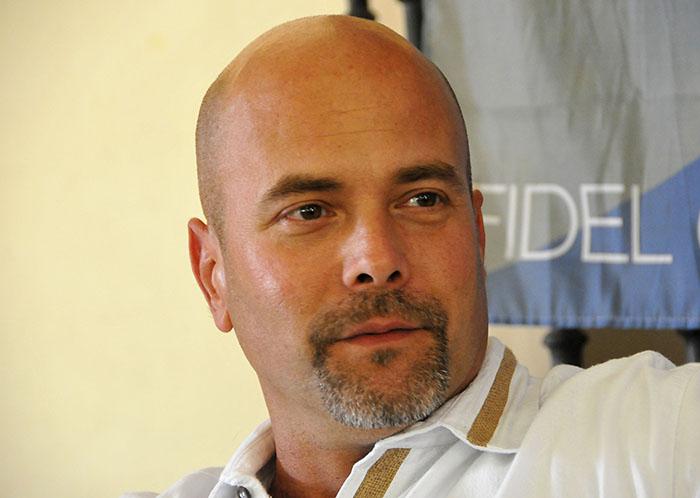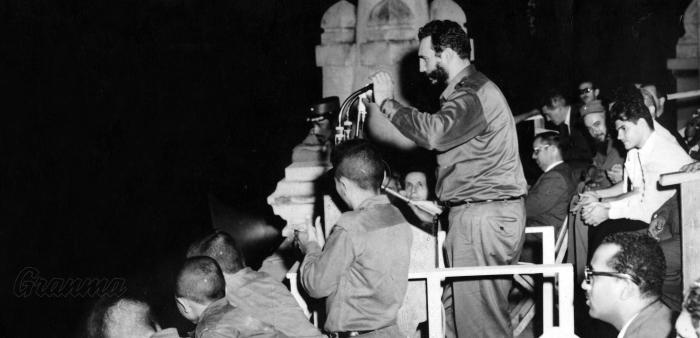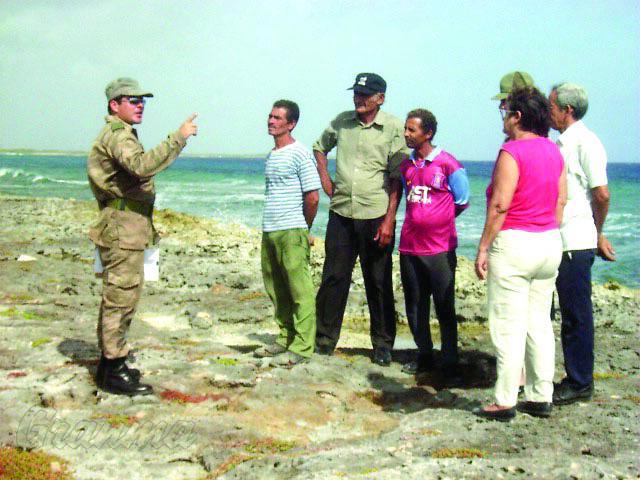
When the interviewee agreed to this conversation, he had not yet managed to get his office in order. Doing the job he has been assigned, working shoulder to shoulder with his people in their neighborhoods, is much more satisfying. A clean desk is the last thing he needs at the moment.
Revitalizing the vital work of the Committees for the Defense of the Revolution (CDR) is the mission decorated Hero of the Republic of Cuba Gerardo Hernández Nordelo has assumed. Without thinking twice, he accepted the task of developing greater effectiveness within the almost 138,000 of these neighborhood groups on the island, intent on turning the challenge into an opportunity.
“The Committees for the Defense of the Revolution were founded in 1960 with a specific objective that was critical at that time, but which remains equally so in our time. Nothing lasts 60 years without transformations, without maintenance. The organization must adapt to the new Cuban context and work accordingly,” stated a man whose disposition to give his all for the homeland won the admiration of his people.

Nonetheless, he insisted, the reason CDRs were founded has not changed.
Defending the Revolution is fundamental, although the settings and ways of doing so have evolved, he stated, adding the pressing questions, “What does defending the Revolution mean today? What must we do to contribute to the society in which we live, to improve it?”
The CDR National Coordinator noted that Cuban communities are privileged to have the presence of a neighborhood organization on every block, which is not the case in other countries.
“The visible challenge today, more than ever, is knowing how to participate, to use the CDR’s strengths to consolidate actions that benefit all, since we are all, in the end, members. The support of this mass organization to all of the Revolution’s social projects, that have resulted in greater wellbeing for the people, demonstrates its usefulness,” he said.
THE GREATEST CHALLENGE IS JOINING FORCES
The activities that CDRs conduct today in all of Cuba face criticism of many kinds; much is constructive, some less so, and quite a few complaints are coordinated in clear attacks that seek to take advantage of weaknesses to discredit the organization.

This is why Gerardo insists on telling the stories that show what can be done when those of goodwill are mobilized.
Examples include efforts to prevent prostitution and confront drug trafficking, anti-social behavior and other phenomenon. Families in need have been assisted, and projects to build school-family-community connections organized.
The work of the Mirando al Mar (Watching the Sea) anti-drug brigades, of the 60th Anniversary Youth Contingents, and that done jointly with the Federation of Cuban Women are all good reasons to support our CDRs.
“Right now, given the health emergency, it is the CDR on the block that knows who is at-risk, who could help deliver food and medicine to older adults. Neighborhood residents can help with the medical surveys, and there are hundreds of youth participating in these tasks and others, many of which have been organized by CDRs,” Gerardo noted, while acknowledging that more activism is needed.
The initiative that today most needs leadership in neighborhoods is, no doubt, the urban, suburban and family agriculture movement, he stated, explaining, “The Cultiva tu pedacito (Cultivate you little piece) project is intended to take advantage of every vacant space and make it productive.”
Gerardo is well aware that backyard gardens alone will not resolve the country’s food sovereignty problem, but he insists that they can help increase families’ access to fresh, healthy produce, give variety to their diet, and even that of their neighbors.
For the new CDR National Coordinator and the organization’s 8.5 million members, this 60th anniversary means not only more than half a century of existence. It is also a birthday that announces the maturity of an organization that requires revitalization, an organization with an impressively wide reach that intends to function better, because the Revolution needs it.















